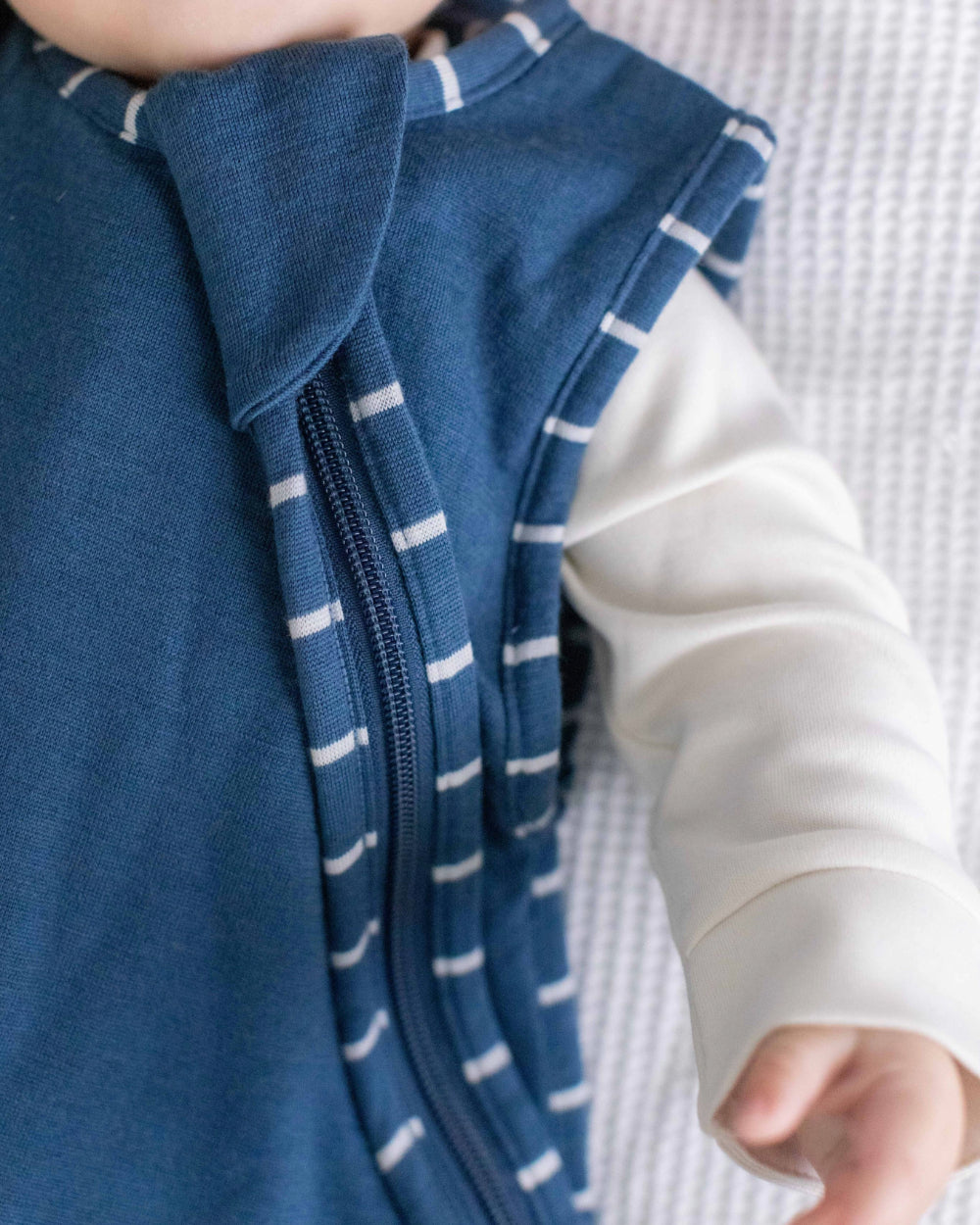
We've all heard that merino wool is an excellent choice for babies, celebrated for its softness, breathability, and natural warmth. However, not all merino is created equal.
When it comes to determining quality, one key factor sets high-quality merino apart—but what exactly makes the difference?
What Is Micron?
Micron is a unit of measurement that quantifies the diameter of individual wool fibres. In the world of merino wool, the micron count is essential for determining the fibre’s softness and quality. One micron equals one-millionth of a meter, and the lower the micron count, the finer and softer the wool feels against the skin.
What Micron Should I Look For?
When choosing merino wool, anything in the extra fine range—typically around 18.5 microns—is ideal, especially for baby clothing.
A 18.5-micron merino wool means that each fibre has an average diameter of just 0.0185 millimetres—much finer than a human hair. This exceptional fineness results in a fabric that feels luxuriously soft and smooth, with none of the itchiness often associated with wool.
Cheaper options with higher micron counts can be coarser, itchy and less gentle, potentially leading to discomfort for your baby.
Opting for premium, extra-fine merino wool is a worthwhile investment in both comfort and longevity for your little one’s wardrobe.
How Can I Tell If Merino Wool Is Good Quality?
Determining the quality of merino wool involves looking at several key factors.
First, consider the micron count: high-quality merino typically falls in the extra fine range of 17 to 19.5 microns, with lower numbers indicating finer, softer wool.
If you can’t find the micron count, pay close attention to the feel of the fabric. Premium merino should feel exceptionally smooth and gentle against the skin, with no coarse or scratchy sensations. If the fabric feels uncomfortable or rough, it may not meet the high standards of quality you’re looking for.
Be wary of significantly cheaper prices, as they may indicate that the wool does not meet these quality standards. Inexpensive merino often lacks the finer micron count and superior craftsmanship, compromising comfort and longevity. Additionally, high-quality merino should exhibit excellent breathability and durability, maintaining its shape and softness over time.
Ensure the wool is sourced from reputable suppliers who adhere to high standards of animal welfare and environmental care. By evaluating these aspects, you can confidently select merino wool that offers superior comfort and long-lasting performance.



